When it comes to treating vascular conditions, it's essential to understand the roles of different specialists. Vascular surgeons and interventional radiologists both play crucial roles in managing vascular health, but their approaches and specialties can vary significantly. At EndoVascular Consultants, we believe in empowering our patients with knowledge to make informed decisions about their care.
Vascular Surgeon
A vascular surgeon is a medical doctor who specializes in the diagnosis, management, and surgical treatment of diseases affecting the vascular system, which includes arteries, veins, and lymphatic vessels. They are trained to perform both open surgeries and minimally invasive procedures.
Surgical Interventions: Performing complex surgeries such as aneurysm repairs, bypass surgeries, and carotid artery surgeries.
Minimally Invasive Procedures: Utilizing techniques like angioplasty and arterial stenting.
Comprehensive Care: Providing long-term management for chronic conditions like peripheral artery disease (PAD), also known as peripheral vascular disease, and varicose veins.
Interventional Radiologist
An interventional radiologist is a medical doctor who specializes in performing minimally invasive procedures using imaging guidance. These procedures often involve small incisions and are typically less invasive than traditional surgery.
Minimally Invasive Techniques: Using radiology and imaging technologies such as fluoroscopy, CT, MRI, and ultrasound to guide procedures.
Wide Range of Treatments: Addressing conditions such as vascular diseases, cancers, uterine fibroids, and liver disease.
Patient Management: Providing minimally invasive care with targeted treatments, shorter recovery times, and less risk compared to traditional surgeries.
What are Some More Differences Between an Interventional Cardiologist and a Vascular Surgeon?
An interventional cardiologist primarily focuses on diagnosing and treating heart-related conditions using catheter-based techniques. They perform procedures like angioplasty and stenting to manage heart disease. Cardiothoracic and vascular surgeons may work alongside them as the latter specializes in more invasive procedures. On the other hand, a vascular surgeon, a subset of cardiothoracic and vascular surgeons, specializes in diagnosing and treating diseases of the vascular system, which includes arteries, veins, and lymphatic circulation, through both surgical and non-surgical methods.
Key Points:
- Interventional Cardiologist: Focuses on heart-related conditions.
- Vascular Surgeon: Specializes in the entire vascular system.
What is the Difference Between a Surgeon and an Interventionist?
The term "interventionist" typically refers to an interventional radiologist or cardiologist who uses minimally invasive techniques guided by imaging technologies. Surgeons, however, often perform traditional open surgeries, although many now also perform minimally invasive procedures.
Key Points:
- Surgeon: Performs traditional and minimally invasive surgeries.
- Interventionist: Uses imaging to guide minimally invasive procedures.
What Does a Vascular Doctor Do on His First Visit?
During your first visit to a vascular doctor, the focus will be on understanding your medical history, symptoms, and risk factors. The doctor may conduct a physical examination and order diagnostic tests such as ultrasounds or CT scans to evaluate your vascular health.
Key Points:
- Medical History: Review of symptoms and risk factors.
- Physical Examination: Initial assessment.
- Diagnostic Tests: Ultrasounds, CT scans, etc.
Does a Vascular Surgeon Treat Blood Clots?
Yes, vascular surgeons are highly skilled in treating blood clots. They use various techniques, including medication, catheter-based procedures, and surgery to remove or dissolve clots and prevent complications.
Key Points:
- Treatment Techniques: Medication, catheter-based procedures, surgery.
- Goal: Remove or dissolve clots, prevent complications.
How Serious is Vascular Surgery?
Vascular surgery can range from minimally invasive procedures to major surgeries, depending on the condition being treated. While some procedures are outpatient and involve minimal recovery time, others may require more extensive preparation and recovery. The seriousness of the surgery depends on the patient’s overall health and the complexity of the procedure.
Key Points:
- Range of Procedures: Minimally invasive to major surgeries.
- Recovery Time: Varies based on procedure and patient health.
Why Would You Need an Interventional Radiologist?
Interventional radiologists, experts in interventional radiology, are specialists who use imaging techniques to guide minimally invasive procedures. These doctors can treat a wide range of conditions, such as vascular diseases, cancers, and uterine fibroids, often with less risk and shorter recovery times compared to traditional surgery.
Key Points:
- Imaging Techniques: Guide minimally invasive procedures.
- Conditions Treated: Vascular diseases, cancers, uterine fibroids, etc.
- Benefits: Less risk, shorter recovery times.
Reach Out To Us
Understanding the roles of vascular surgeons and interventional radiologists, experts in vascular and interventional radiology, can help you make informed decisions about your vascular health. If you're dealing with a vascular condition, the specialists at EndoVascular Consultants, adept in vascular and interventional radiology, are here to provide comprehensive care and guide you through the best treatment options available. For more information on how our specialists can help you, contact EndoVascular Consultants today. Schedule a consultation to explore the most effective treatment options tailored to your needs.

